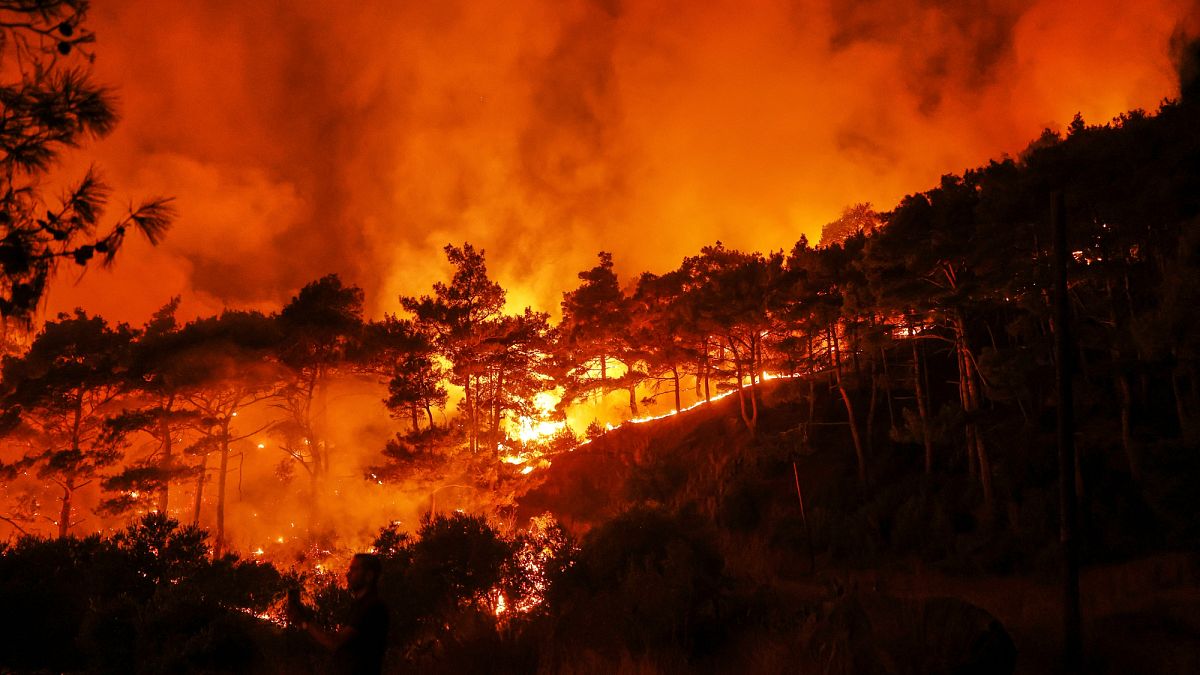

As extreme weather patterns grip various parts of the world, communities and governments are facing mounting pressure to balance their immediate responses to natural disasters with a renewed focus on long-term climate resilience. Recent events across Europe, Asia, Australia, and North America highlight the urgency of coordinated actions to address both the impacts and the broader causes of climate anomalies.
Along the northwestern coast of Syria, devastating wildfires have broken out, leading the Syrian government to reach out to the European Union for assistance. Despite aid from neighboring countries like Jordan, Turkey, and Lebanon, the fires have stubbornly resisted containment. This call for support underscores the need for international cooperation in tackling environmental crises, especially when national resources are stretched thin.
In Europe, the aftermath of an intense heatwave was marked by fierce storms that swept through Central and Eastern Europe. These storms brought tragic loss of life and substantial damage to infrastructure, serving as a poignant reminder of the volatile consequences of climate disruptions.
Similarly, Portugal experienced record-high temperatures at the close of June, contributing to a series of wildfires across southern Europe. These conditions resulted in excess deaths, further compounding the humanitarian impact of the heatwave sweeping across the region. Meanwhile, France’s Marseille Airport had to temporarily halt operations due to nearby blazes, illustrating the broad spectrum of disruptions caused by climate-induced events.
Reacting to these challenges, Danish Prime Minister Mette Frederiksen emphasized the enduring importance of climate action within the European Union. She expressed concern that some leaders might be losing sight of environmental priorities, reinforcing the necessity of maintaining a unified approach to climate policy. This perspective seeks to remind EU members that long-term environmental strategies remain crucial, even amidst pressing economic and social agendas.
Across the globe in Australia, a groundbreaking report suggests that individuals can significantly lower their power bills by transforming homes to become more energy-efficient. The emphasis on solar energy, battery storage, and advanced appliances sheds light on the potential for grassroots solutions to contribute to broader energy sustainability goals. This aligns with ongoing debates over the balance between traditional energy sources and renewable options, highlighting how day-to-day choices can impact national energy policies.
In Asia, Himachal Pradesh in India was overwhelmed by flash floods and landslides after unusually heavy rains. The state faced extensive property damage and a critical search for missing persons. Such incidents illustrate the immediate need for robust infrastructure capable of withstanding severe weather while promoting adaptive measures at local and national levels.
Meanwhile, in the United States, Texas witnessed a dramatic increase in flood-related fatalities following intense rains during the Independence Day celebrations. With over 105 confirmed deaths as search efforts continued, the state’s experience underscores the critical need for effective disaster preparedness and response systems.
The global surge in extreme weather incidents invites reflection on collective resilience strategies to mitigate both immediate risks and long-term climate threats. As nations worldwide continue to navigate these challenges, there’s a growing recognition that coordinated, innovative approaches to climate resilience are more essential than ever.
Source: {link}
